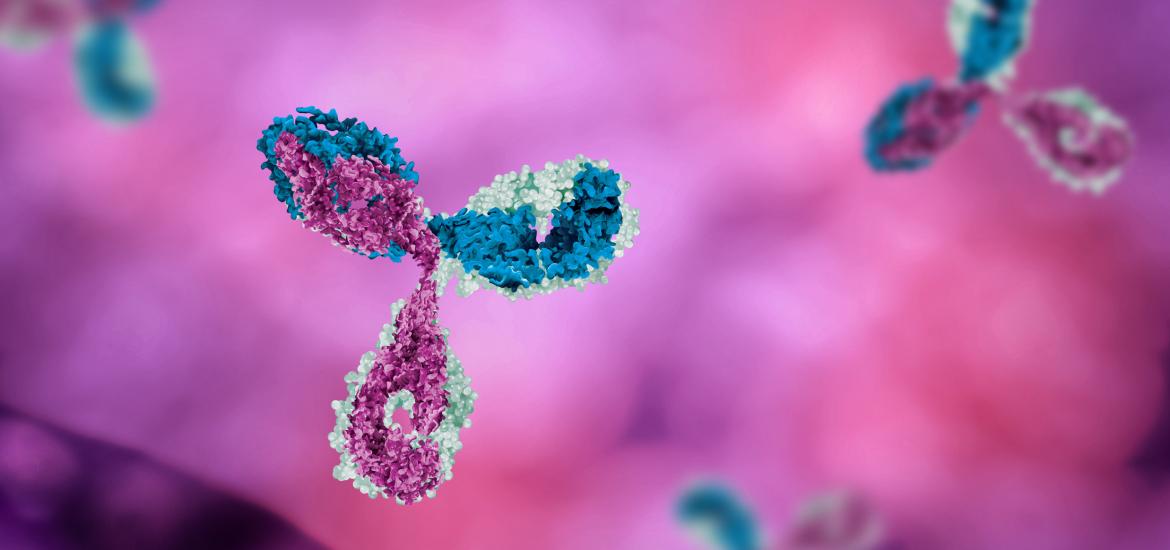
Here comes another PD-1/VEGF bispecific
OncoC4’s AI-081 features among the industry’s latest first-in-human trial initiations.
OncoC4’s AI-081 features among the industry’s latest first-in-human trial initiations.

With bispecific antibodies that hit PD-(L)1 as well as VEGF quickly becoming the hottest property in biotech, OncoC4 has wasted no time in putting its contender, AI-081, into its first clinical study.
The solid tumour trial has just been revealed on the clinicaltrials.gov registry, and is due to start by the end of this year. Other projects newly into human trials, according to the latest listings, include Sanofi’s entry into GPRC5D blockade, Exelixis’s shot at a new synthetic lethality mechanism, and a novel approach at RAS inhibition from BridgeBio’s oncology spinout.
That said, given the buzz that Summit and BioNTech have made around anti-PD-(L)1 x VEGF bispecifics, it’s OncoC4’s AI-081 that might generate the most attention. This existence of this molecule hadn’t been widely disclosed until OncoC4 (a group that, coincidentally, lists BioNTech as a key partner) merged with its sister company Acroimmune last month.
However, at the time all OncoC4 disclosed about AI-081 was its mechanism – like Summit/Akeso’s ivonescimab the MAb blocks PD-1 rather than PD-L1 – and that it was planning to file a US IND for it by the end of 2024. That the first-in-human solid tumour Bipave-001 study should already have been entered on clinicaltrials.gov suggests that IND acceptance is imminent.
GPRC5D
Meanwhile, Sanofi’s SAR446523 will target the fast expanding mechanism of GPRC5D blockade in multiple myeloma that features Johnson & Johnson’s Talvey, and R&D projects from Bristol Myers Squibb and others.
Pathios Therapeutics, a private UK biotech, recently closed a $25m series B round, and is now progressing its lead pipeline asset, PTT-4256, into a first-in-human solid tumour trial. The group believes that GPR65 is an underlying causal driver of the immunologically hostile tumour microenvironment, and PTT-4256 is its first inhibitor of this receptor.
Those investors tracking PKMYT1 inhibition, the synthetic lethality approach where Repare’s lunresertib monotherapy disappointed last year, will have noted the scientific rationale behind combining this with activity against Wee1, where Schrödinger’s SGR-3515 entered phase 1 this year.
Exelixis will soon find out whether hitting PKMYT1 alone still has legs, as the first human trial of its XL495 tests this small molecule as monotherapy as well as in combination with chemo. Acrivon last week reported the start of dosing in a phase 1 trial of ACR-2316, another dual Wee1/PKMYT1 Inhibitor, but this has yet to appear on clinicaltrials.gov.
Recently disclosed first-in-human studies*
| Project | Mechanism | Company | Trial | Scheduled start |
|---|---|---|---|---|
| 177Lu-JH04 | FAP Lu-177 radioconjugate | Bivision Pharma | FAP+ve tumours (academic-sponsored) | 21 Aug 2024 |
| PTT-4256 | GPR65 inhibitor | Pathios Therapeutics | Solid tumours | 21 Oct 2024 |
| SAR446523 | GPRC5D MAb | Sanofi | r/r multiple myeloma | 28 Oct 2024 |
| BBO-10203 | PI3Kα:RAS breaker | BridgeBio Oncology | Breaker-101, solid tumours | Oct 2024 |
| XL495 | PKMYT1 inhibitor | Exelixis | Solid tumours | Oct 2024 |
| DCC-3009 | KIT inhibitor | Ono (ex Deciphera) | 2nd-line GISTs with KIT or PDGFRA mutation | Nov 2024 |
| AI-081 | PD-1 x VEGF MAb | OncoC4 | Bipave-001, solid tumours | 31 Dec 2024 |
Note: *projects newly listed on the clinicaltrials.gov database between 3 and 10 Oct 2024.
Last year BridgeBio spun out a cancer-focused division, formerly known as TheRas and now going under the name BridgeBio Oncology, and BBO-10203 is one of its most intriguing assets. The molecule is described as a PI3Kα:RAS breaker, claimed to be a novel approach to PI3Kα/AKT inhibition that could avoid hyperglycaemia.
BBO-10203 has secured a spot at a “new drugs plenary” session of the upcoming EORTC-NCI-AACR congress, and its recently initiated first-in-human trial, Breaker-101, now has a clinicaltrial.gov entry. The study focuses on HER2-positive or negative breast cancers, KRAS-mutant colorectal cancer, and KRAS-mutant NSCLC.
Finally, in June the targeted oncology biotech Deciphera was acquired by Japan’s Ono Pharmaceutical for $2.4bn. The Deciphera business now has five clinical assets, with the entry of the pan-KIT inhibitor DCC-3009 into its first phase 1 study.
4272













